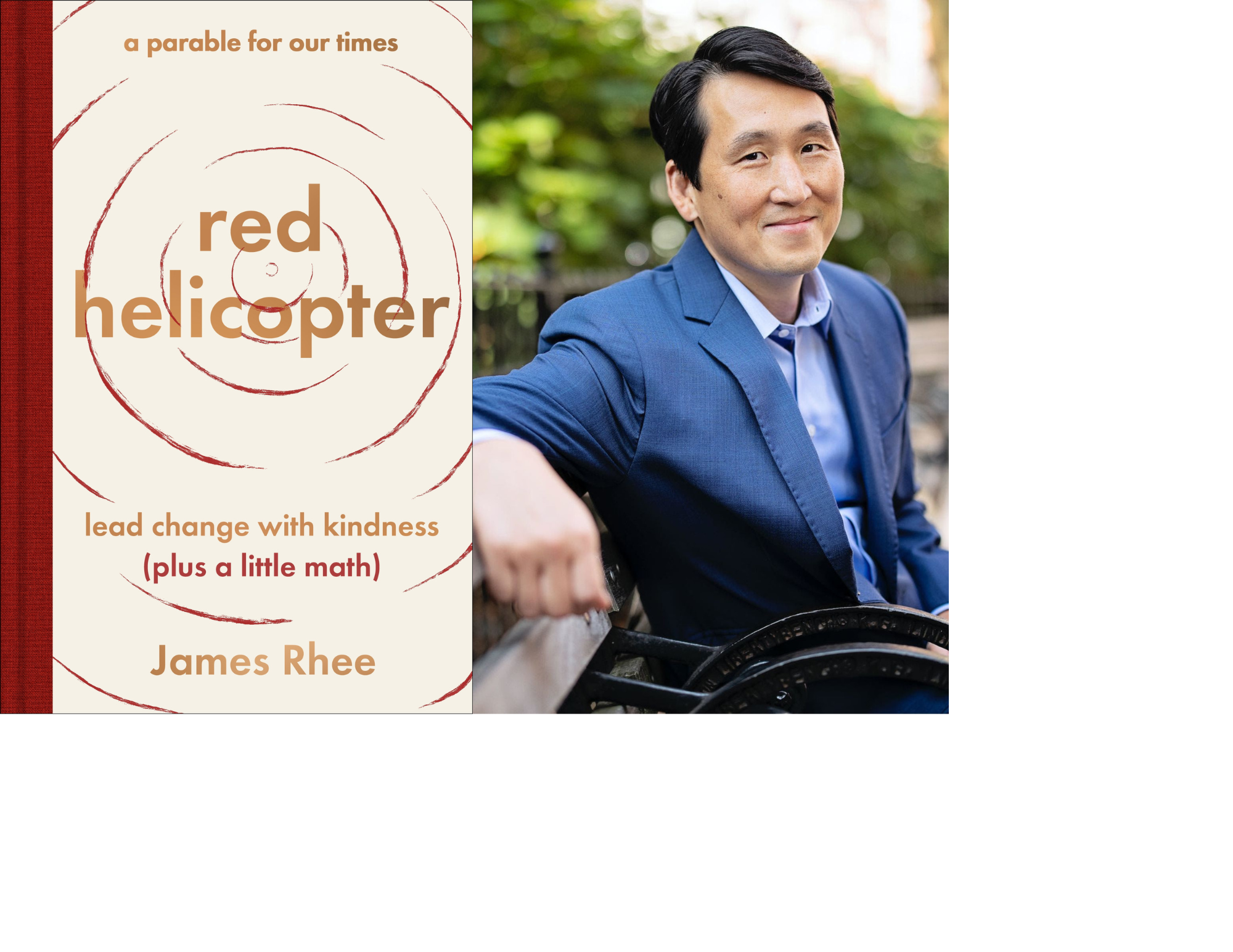James C. Rhee ’93 has experienced his fair share of plot twists throughout his life.
Lee is a Korean-American whose parents are immigrants. He graduated from Long Island Public School in New York and Harvard University, and embarked on the path of becoming a high school teacher. In an interview with the Harvard Crimson, Lee explained that he made this choice in part to accept risks and learn new skills in an unfamiliar environment.
“Sometimes the accomplishment of getting into Harvard — which is amazing — but sometimes it’s really debilitating and limiting,” Lee said.
“The fact that you went to Harvard—where am I supposed to go? It’s prestigious, right? That’s brand recognition.” It makes you risk averse. You don’t want to do things that aren’t ‘prestigious’, things that put you into beginner status.
After teaching for two years, Lee went on to Harvard Law School but never practiced law. Instead, he worked at a Wall Street investment bank and then decided to leave abruptly after the firm fired a close friend.
Lee would soon find himself in another unorthodox position: as a Korean American leading Ashley Stewart, a troubled clothing company that primarily targeted plus-size black women. Through what he calls a strategy of good intentions and a little math, Lee and his team were ultimately able to save Ashley Stewart from an almost certain reckoning.
Lee’s first book, The Red Helicopter—A Parable for Our Times: Leading Change with Kindness (Plus a Little Math), captures every detail of this life journey—from pain to joy, and everything in between.
The title comes from what Lee calls the Red Helicopter story: a special story that becomes entangled with its owner for often elusive reasons. He experienced his own red helicopter story at a very young age, when he received a gift of a toy red helicopter in a moment of profound kindness. But more than anything, Lee said, he hoped the phrase would serve as a connecting metaphor.
“I hope everyone has their own red helicopter story. To me, it’s actually a red helicopter. To you, it might be just something else,” Lee said.
Lee attributes his success to his experience and instincts as the son of immigrants. The experience included moments like watching his mother shed her vulnerability the moment she stepped into a Korean grocery store, where it didn’t matter that she didn’t speak English. Later, his intuition told him that Ashley Stewart was to customers what the Korean grocery store was to his mother, and gave him an intuitive feel for how to guide and reorganize the company.
Still, Lee knew it was hard to trust his instincts and perceptions—“nunchi,” in Korean. But what keeps him going, he says, is an understanding of the principles he values.
“I was very honest about my thoughts in the book, and I was like, ‘What am I doing?’” Lee said. “If I can’t see that, I just feel like I can’t look myself in the mirror.”
“So even if it fails, which it should, I know it fits who I am and I’m the person who would do it. So that’s number one, that story. That’s a North Star,” Lee continued said.
This philosophy is inseparable from Rhee’s other core values: kindness and grace. He recounts some of the harsher realities of growing up and observing how his immigrant parents were treated by others—sometimes facing blatant racism. But practicing kindness can not only learn to forgive and alleviate emotional pain, but also make it better, Lee said.
“This is the duality of existence,” Lee said. “You eliminate the extremes, you don’t have toxic optimism, you realize that your life is not going to be linear, you realize that you’re going to have periods of time where you’re not particularly happy or excited.”
“A lot of this book is about the journey of accepting reality as it is,” Lee adds. “But don’t accept the bad parts and just say, ‘I’m not going to do anything about it.'” Be realistic and say, ‘Maybe I can do something to make the bad parts a little better.’
Lee also described the significant influence music had on his life and later his books – during the interview, he sat with a guitar on his lap, which he occasionally strummed.
“The whole book is structured like a piece of music,” Lee said. “The acknowledgment I wrote is a fugue in E flat major.”
If Lee were to condense his life into what he calls a “three-minute movie,” he said he would want it to be like a full-fledged musical work—full and vibrant.
“I thought about it, what’s the tone? Who’s in it? So that’s number one,” Lee said. “This may sound morbid to you. But it doesn’t mean to be morbid. It’s just that one day I’m going to die. I want my children to be able to play a three-minute movie of my life at my funeral.” Would be very proud.
“You don’t want to have a life story that’s just one rhythm, one note, one tone, one instrument. That would be boring,” Lee continued. “I never want to retire. I don’t think of what I’m doing as work. I want to die right when the climax is coming, and then it’s over. Like boom. Over. And then the final, like—”
Lee paused and strummed loudly on his guitar to emphasize his words.
“–I’m going out!”




